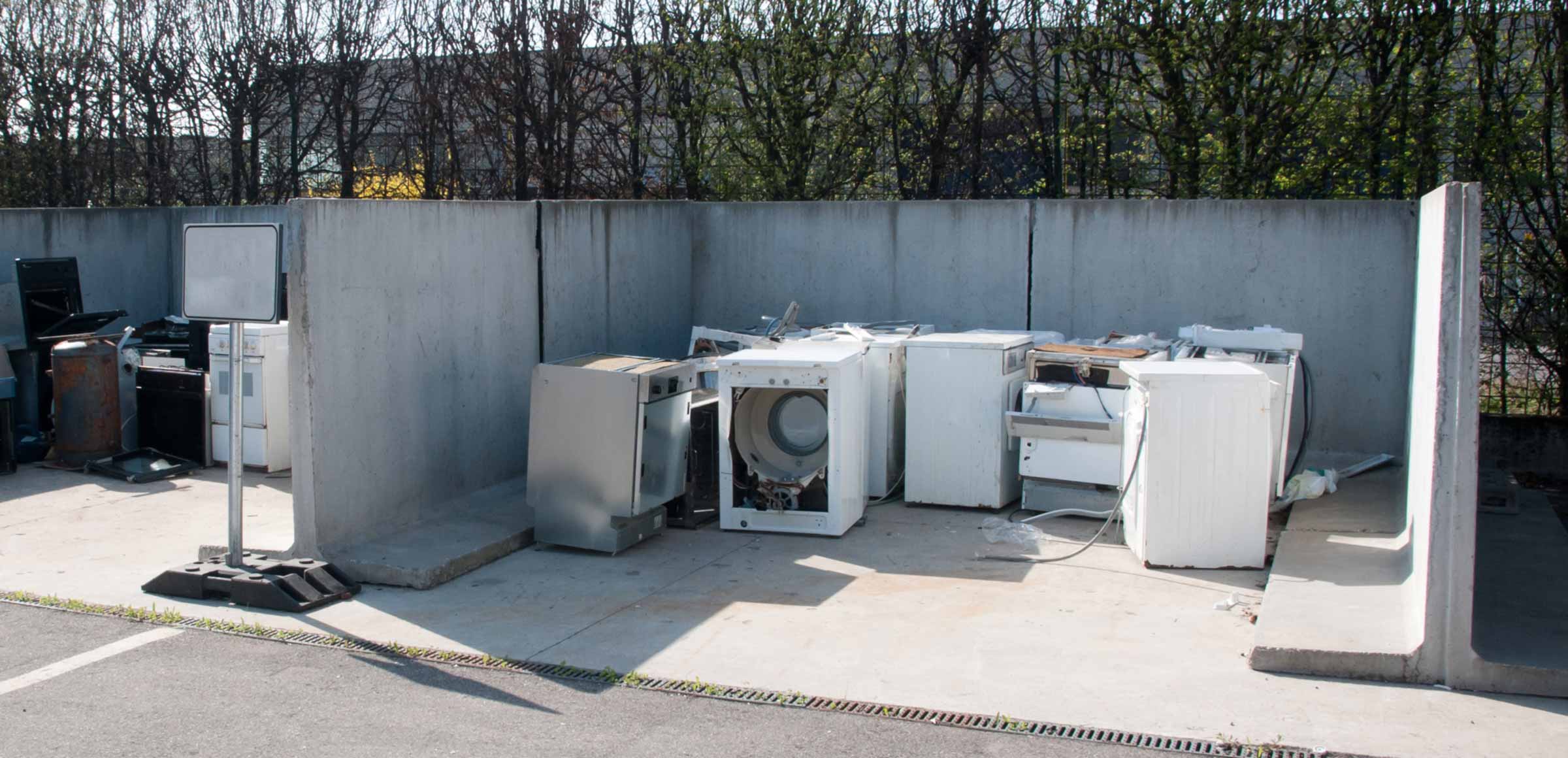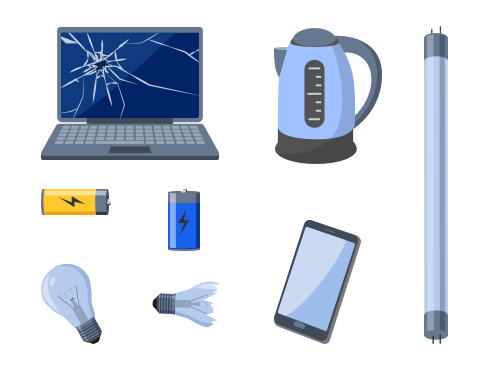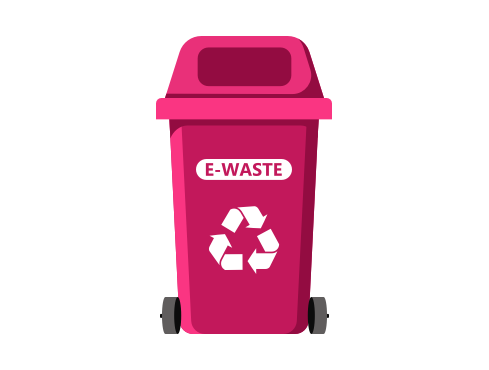If you prefer to always view the website in English, please click here.
How should electronics and domestic appliances be recycled?
Recycling means giving our planet a new chance. How? By taking advantage of and transforming used materials to generate new products. With this process we give a new life to those materials that would otherwise be thrown away as rubbish.
{{content.phone.title}}
{{content.phone.text}}
{{content.phone.phoneText}}
{{content.form.title}}
{{content.form.text}}
{{content.form.success.title}}
The process appears to be simple, we know that the blue container is for paper and that the yellow is for containers. But what about electronics and domestic appliances? Here is all you need to know about how and where to recycle electrical appliances to give them a second life and take better care of our planet.
Recycling of electronic equipment
This category includes appliances that operate with batteries or electric current, as well as other parts that they need when operating, such as cables, chargers, peripherals, etc. Regardless of their origin (industry, commerce, organisations or households) they are all classified as household waste.
Always bear in mind that these materials are highly toxic: If they are not recycled they pose a threat to the environment, with greenhouse gas emissions, water pollution and other negative consequences for the environment and our health. Since many of the materials used to manufacture them can be reused, recycling also saves on the extraction and processing of the minerals they need to be able to operate, so we would then reduce the contamination caused by these processes.
All electrical and electronic equipment is classified under the same label, with the symbol representing electronic waste, which indicates that it should not be disposed of as conventional rubbish, but should be taken to a Recycling Centre, where this type of waste is specifically processed correctly.
There are two types of Recycling Points: Fixed Recycling Points, to which you need to take the waste you wish to recycle and mobile Recycling Points or waste collection services, depending on your municipality. Mobile Recycling Points generally have an established route and schedules. In any case, before you use any of these two services you are recommended to contact your Town or City Council and that they inform you about the waste to be deposited or collected, since if the waste is of high volume, larger vehicles will be needed to move it and not all municipalities have them.
What happens if I buy a new domestic appliance?
Whenever you purchase a new domestic appliance, the place where you bought the new appliance is obliged to take away the old one, always providing it is equivalent to the new appliance in category and performance. In other words, if you have bought a microwave, but you need to get rid of your old refrigerator, the most logical thing is for you to take it to a Recycling Point as indicated above.
Domestic appliance shops provide this type of service in two ways: If it is a large appliance, when they deliver the new appliance they are responsible for taking away the old one free of charge. The second option is for you to take it to the establishment where you bought it. Large stores (with surface areas exceeding 400 m2) have a collection area for small domestic appliances measuring less than 25 cm.
Taking advantage of old mobile phones
The mobile phone came into our lives just a couple of decades ago and it is now an essential item that we take everywhere. It has thousands of functions, so many that sometimes we even forget that it is a telephone.
That is why so many people change it frequently because of the damage they suffer in our daily lives. Not only that, technological advances increase the features and functionalities every year, so it is often not convenient to keep an old, outdated mobile phone.
This is why you will always see a wide range of discarded mobile phones at the Recycling Points and they can be given a second life.
Other functions of mobile phones
As a surveillance camera, for taking photos, storing files or simply as a spare mobile, an old mobile telephone can always be used for something.
Selling your old mobile phone
If your mobile phone is in good condition and you think it would be a waste to take it to a Recycling Point, you could easily sell it. But you should always remember to delete all your information and access data before passing your old mobile phone onto a third party (delete the memory, reset it and return it to its original configuration). There will surely be someone who could give it a second life.
Donate a mobile phone you no longer use
There are organisations that accept second-hand mobile phones in good condition for charitable purposes. Find out more so you can help not only the Environment but someone who needs it.
Deposit it with a mobile phone recycling company
Mobile phones contain highly demanded devices and materials, which are needed to manufacture or repair other devices. That is why there are companies specialising in extracting these elements and making them available to the factories that need them, while recycling other parts of the device.
Always remember that batteries cause serious pollution and that they should be deposited in a different container than electronic devices. If you are unable to remove the battery there is no need to worry, because waste management technicians will do it for you. That is why it is so important to dispose of these devices in the right place.
What should I do with my printer toner?
The toner for the printer is another element in the home that causes most pollution and we never seem to know how to recycle it correctly.
Toners contain highly contaminating elements because of the chemical substances of which they are composed. Because of what they are, they should be recycled in the same space as electronic appliances, so they can be deposited in any of the places detailed above.
Take a minute to find the product that best suits you:
{{firstStep.title}}
Take a minute to find the product that best suits you:
{{title}}
{{content.phone.title}}
{{content.phone.text}}
{{content.phone.phoneText}}
{{content.form.title}}
{{content.form.text}}
{{content.form.success.title}}
You don't need to adapt to Endesa's tariffs because they adapt to you. If you go to our catalogue you can compare the different tariffs for yourself. Or if you prefer, you can answer a few questions and we will take care of comparing all the different electricity and gas tariffs and then make a customised recommendation.
Take a minute to find the product that best suits you:
{{title}}
{{content.phone.title}}
{{content.phone.text}}
{{content.phone.phoneText}}
{{content.form.title}}
{{content.form.text}}
{{content.form.success.title}}
You don't need to adapt to Endesa's tariffs because they adapt to you. If you go to our catalogue you can compare the different tariffs for yourself. Or if you prefer, you can answer a few questions and we will take care of comparing all the different electricity and gas tariffs and then make a customised recommendation.
Comparison of Electricity and Gas Tariffs
You don't need to adapt to Endesa's tariffs because they adapt to you. If you go to our catalogue you can compare the different tariffs for yourself. Or if you prefer, you can answer a few questions and we will take care of comparing all the different electricity and gas tariffs and then make a customised recommendation.
Spend a minute to find the product which best adapts to you:
{{firstStep.title}}
Spend a minute to find the product which best adapts to you:
{{title}}
Spend a minute to find the product which best adapts to you:










